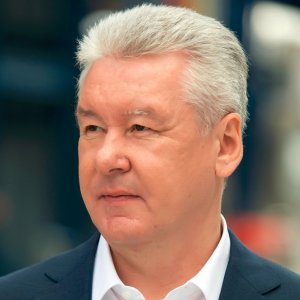WHO evaluated the program of medical examinations in the Healthy Moscow pavilions

The city authorities announced the resumption of the Healthy Moscow project, under which Muscovites can undergo a comprehensive medical examination free of charge in specially equipped pavilions installed in various city parks. The number of check-ups in the Healthy Moscow pavilions is greater than during standard medical examinations, Moscow Mayor Sergei Sobyanin said as he opened one of the health check-up pavilions in Izmailovsky Park last week.
What in RUSSIA is usually called a medical examination in international practice is called "screening" (from the English screening "selection, sorting").
Clinical examination is a complex of preventive medical measures, including a physical examination and a number of additional screening studies. The main purpose of clinical examination is to identify non-communicable, chronic diseases, as well as factors that threaten the development of these pathologies.
Medical screening - usually for a specific disease. For example, you can talk about screening for cervical cancer or screening for diabetes. The goal of screening is to identify a specific disease before symptoms appear.
“Screenings are programs that involve identifying groups in the general population that are considered healthy (generally not having any symptoms), and health care uses a relatively simple medical test that can determine if a person has a specific disease,” RBC explained. World Health Organization (WHO) Representative in Russia Melita Vujnovich. The goal of screening, she said, is to reduce the number of deaths and the number of new cases. Early diagnosis is aimed at people who are at high risk and have some symptoms (even minor ones), and is aimed at reducing mortality and complications, she said.
“It should be noted that this initiative (the Healthy Moscow project) raises public awareness of the importance and burden of non-communicable diseases, as well as the importance of early diagnosis of certain diseases, such as hypertension, diabetes <…> and, of course, lifestyle changes ”, Vujnovic said.
Read together with it:
- "Hundreds of Applications for Courchevel": How Russians Are Vacationing in the Alps This WinterRussians have regained interest in ski resorts in the Alps. Wealthy tourists have adapted to the ruble exchange rate and flights to Europe with a transfer: demand for holidays in Courchevel among tour operators has grown by at least 50%In the 2024/25 winter season , demand for ski trips to the Alps among Russians has increased compared to previous years. There were a lot of Russians in Courchevel ...
- Собянин представил Мосгордуме проект создания «лучшего города Земли»Представляя депутатам Мосгордумы проект развития города, Собянин отметил, что сейчас в мире идет битва за человеческий капитал, в которой Москва должна победить и в конечном итоге «стать лучшим городом Земли» Сергей Собянин выступает перед депутатами столичного парламента с ежегодным отчетом о результатах деятельности Правительства Москвы, 25 декабря 2......
- Собянин заявил о росте продолжительности жизни москвичей с 74 до 79 летСредняя продолжительность жизни москвичей увеличилась с 74 до 79 лет, заявил мэр столицы Сергей Собянин. Его слова приводит Московская городская дума. «Средняя продолжительность жизни горожан выросла с 74 до 79 лет, что вполне сопоставимо с ведущими городами мира», — сказал мэр, говоря о повышении комфорта медицинской помощи. По его словам, Москве удалось снизить смертность горожан от наиболее рас...
- 24/7 access: how Muscovites can monitor the progress of treatment directly from the hospitalPatients in Moscow hospitals can now view the results of their tests, diagnostics and information about treatment in general online , right during treatment . Thus, not only the traditional discharge summary after hospitalization became available to them - now the treatment process can be monitored over time. This data is stored in an electronic medical record (EMR), to which Muscovites have had a...
- In a telegram to Pakhmutova, Putin called Dobronravov a “true creator”Nikolay DobronravovRussian President Vladimir Putin expressed condolences to composer Alexandra Pakhmutova in connection with the death of her husband, poet and songwriter Nikolai Dobronravov. The text of the TELEGRAM was published on the Kremlin website. "Nikolai Dobronravov was an outstanding son of the Fatherland, a true creator and builder, a truly beloved person. His passing is a great, irrep...
- Mosturizm announced an increase in restaurant attendance by more than a thirdAttendance at Moscow restaurants in January-June 2023 increased by a third compared to last year, and turnover by 27%, Mosturizm reports. Restaurateurs attribute this growth to the whitening of the marketIn the first half of 2023, Moscow residents and guests visited restaurants, bars and cafes 36% more often than in the same period last year, the capital’s tourism committee told RBC. Their turnove...
- The capital's first technopark in the food industry will appear in the west of Moscow“We have assigned the status of an investment priority project to the future Ryabinovaya 44 technology park, which is being created in the Ochakovo-Matveevskoye district. it will become the capital’s first technology park in the food industry,” the mayor wrote in his TELEGRAM channel on Thursday. According to him, this project develops the territory near the Moscow Champagne Factory. The area of ...
- Rakova announced the ecosystem of clinical trials of drugs created in MoscowAnastasia RakovaAnastasia RakovaAnastasia RakovaAnastasia RakovaAnastasia Rakova An ecosystem has been formed in the capital for conducting clinical trials of drugs with a single communication center, said Anastasia Rakova, Moscow Deputy Mayor for Social Development. This helps pharmaceutical companies gain access to the entire metropolitan medical infrastructure. According to the Vice Mayor, in t...
- Sobyanin announced the reconstruction of the ice palace "Krylatskoe"The Moscow City Hall decided to overhaul the Krylatskoye Ice Palace, the work should take several months and be completed by September 2023. This was announced in his TELEGRAM channel by Moscow Mayor Sergei Sobyanin . The Krylatskoye sports complex is almost 20 years old - the ice palace was opened in 2......



























































